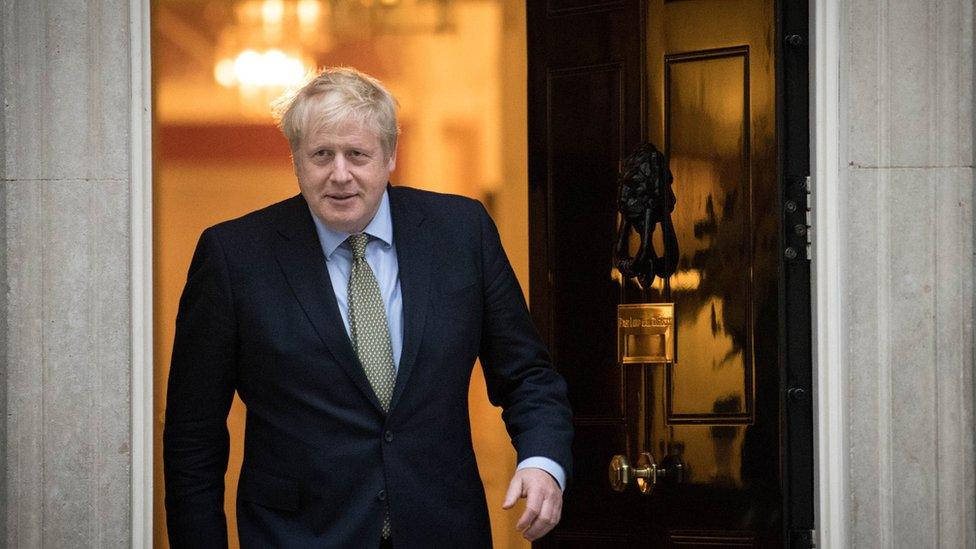Brexit: What a difference a majority makes
- Published

Do not adjust your screen, or your set. MPs have been voting on Brexit.
It's been the most contentious question in UK politics for decades; the argument that cracked our political parties in two and the clash that stretched our famously flexible unwritten constitution well beyond comfort.
The clash that day after day, week after week, month after month, meant it was never quite possible to be sure in the morning that the government would be intact by the time the nation went to bed.
It was the question that, if you have visited this blog from time to time over the last few years you will be well aware of (welcome back and happy 2020 by the way), resulted in stories of agony more often than not.
Guess what though? MPs have been talking about and voting on Brexit for much of the day, and there was only a faint hint of argument.
The opposition parties tried to make some changes to the legislation and failed.
The SNP protested about what was happening, as is their style, while the Lib Dems shared concerns about the future of the student programme Erasmus, which the government says can continue anyway.
The Labour Party looked miserable about what was happening and voted against the Brexit bill, but is frankly right now more concerned with its own survival.
And there was, inevitably, a moment when arch Eurosceptics couldn't help themselves, with one of them popping up on the backbenches to call for "Big Ben to bong for Brexit" on the day we actually leave the EU.
No sniff of uncertainty
There were two things that really mattered though.
Firstly, the legislation that will take us out of the European Union at the end of this month sailed through by a massive margin of 99 votes, without a single Tory rebel.
There was not a single moment of doubt, of jeopardy, no sniff of uncertainty or truly fierce debate that might have stopped it happening.
There was hardly a soul protesting outside on Westminster's College Green either, with no sign of that political festival that popped up at short notice on so many days in the last few years.
And secondly, Boris Johnson begins his premiership at least more politically secure than either of his Conservative predecessors.
One former senior minister even claims that without a real rival in the cabinet, or on the backbenches, he is more powerful than even Tony Blair was after his landslide.
Parliament backed the bill by a majority of 99
It's a different and more predictable political era.
That sense of comfort among Conservatives might not last that long.
But beyond the political atmospherics, the legislation that will take us out of the European Union has now finished its stages in the House of Commons and goes off to be considered by the House of Lords.
With this kind of overwhelming backing, Boris Johnson will be able to stick to his timetable of taking us out at the end of this month.
We are only weeks away, therefore, from a huge junction in our history.
Huge uncertainty
The arguing isn't all over of course. There will be months, more likely many years, of wrangling over our long term relationship with the European Union.
And just as there will be huge numbers of voters relieved, delighted maybe, that it's going to happen finally, there are still swathes of the public who are upset and unreconciled to the result - some furious too.
There are scores of new Tory MPs cockahoop. But many, many of our politicians think it is a mistake.
The first phase after our legal departure this month prolongs the status quo, and there is huge uncertainty about what will come next.
We know we're leaving, but not necessarily how.
But for Parliament, the decision to stay or go has gone. What a difference a majority truly makes.